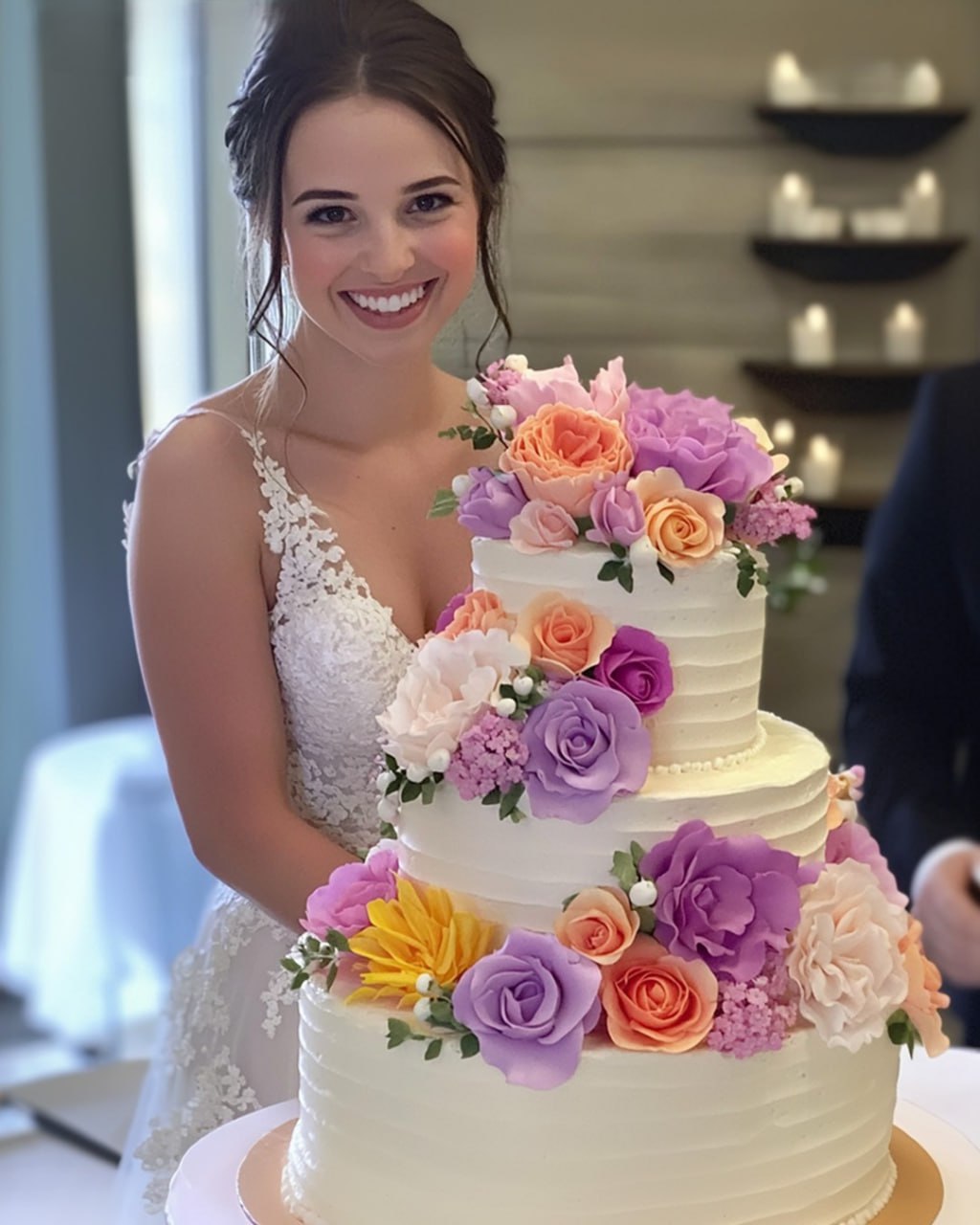When Dave and I decided to plan our wedding without financial help from his wealthy parents, we knew it would be a challenge, but we were determined to create something that was entirely ours. We didn’t want strings attached or guilt wrapped in generosity. We built everything from scratch, from the venue to the menu, and when I announced I’d be baking our wedding cake myself, my future mother-in-law Christine practically choked on her dessert.

She laughed, calling the idea “tacky,” and said it sounded more like a picnic than a wedding. Christine had never worked a day in her life, and her condescension was sharp, especially toward me. From the first time we met, she treated me like a thrift store purchase—eyeing my department store dress and judging my job title with thinly veiled disdain. I was a marketing coordinator, but she made it sound like I cleaned gas station bathrooms. Still, Dave had always stood by me. When he lost his job three months before the wedding, we tightened our budget even more, and I stood firm on not accepting any offers from Christine. “No loans from your mom,” I said, and he agreed. “Especially not from her.” I suggested baking the cake myself, something I had loved doing since childhood.
I spent weeks testing recipes, practicing piping, and watching tutorials. I wanted our cake to be perfect, not just in taste but in meaning—a labor of love rather than a symbol of wealth. The night before the wedding, I assembled it carefully at the venue: three tiers of vanilla bean and raspberry filling, covered in smooth buttercream and decorated with cascading hand-piped flowers. The staff admired it like it had come from a top bakery. I was filled with pride. On the wedding day, everything went beautifully. We got ready together, skipped the “don’t see each other before the ceremony” tradition, and stood before our loved ones as partners who had built a future hand in hand. During the reception, the cake rolled out, and the guests gasped. Compliments poured in.
Dave proudly told everyone I had made it, and people were genuinely amazed. But then, Christine took the microphone. “Of course, I had to step in and make the cake,” she said sweetly, laughing as if it were a joke. “I couldn’t let my son have a store-bought disaster!” I was stunned. She stood there, basking in applause, claiming credit for the work I had poured my soul into. I felt the heat rise in my face, ready to defend myself, but Dave touched my arm gently. “Let her lie,” he said. “She’s about to regret it.” Confused but trusting, I sat back and let it go—for the moment. The next day, my phone rang. Christine.
Against my better judgment, I answered. “Alice, I need your help,” she began. She explained that a guest, Mrs. Wilson, was so impressed with the wedding cake that she wanted Christine to make one for her charity gala. Christine was panicking. “I need the recipe and instructions for those flower things,” she said. “You mean the piping techniques? I thought you made the cake,” I replied. She stammered, trying to frame it as a “collaborative effort.” I laughed and told her, “Let me know when the orders come in. I’ll send the clients your way.” Later, Dave burst out laughing when I told him. “That’s karma,” he said. And it was. Within days, Christine’s lie unraveled. She couldn’t produce another cake, and Mrs. Wilson called me directly to commission one. That led to more orders. In just a few months, I had a small but thriving cake business. At Thanksgiving, Christine handed me a store-bought pie. “I bought this,” she muttered. “Didn’t want to lie about it.” It wasn’t an apology, but it was the closest she’d come. Dave’s father later pulled me aside. “In forty years, I’ve never seen her admit she was wrong,” he said. “You’re good for this family.” As we drove home, Dave told me his cousin wanted me to make their wedding cake. I smiled, knowing my hands and heart had built something meaningful. I didn’t need Christine’s praise. I had my truth—and like a good cake, it had risen exactly the way it was supposed to.





